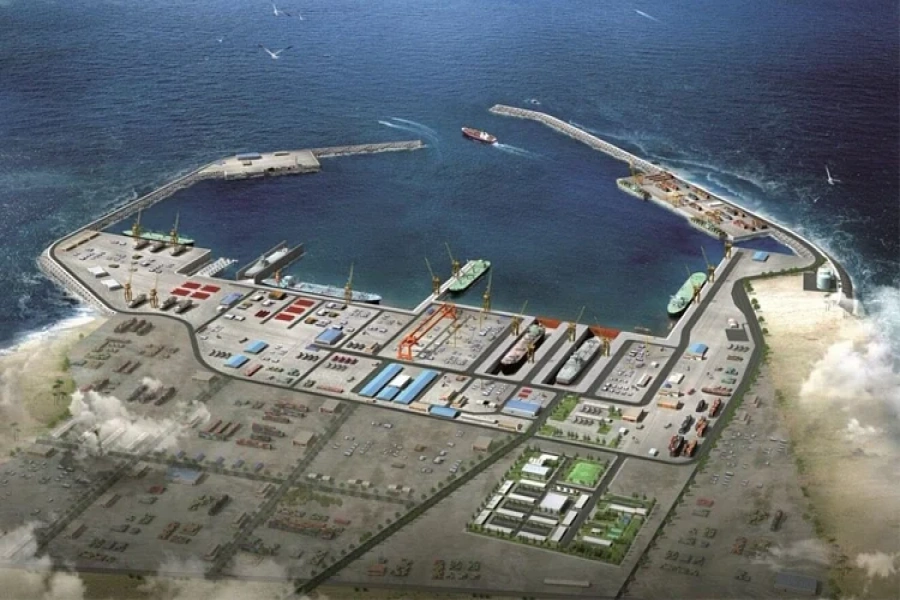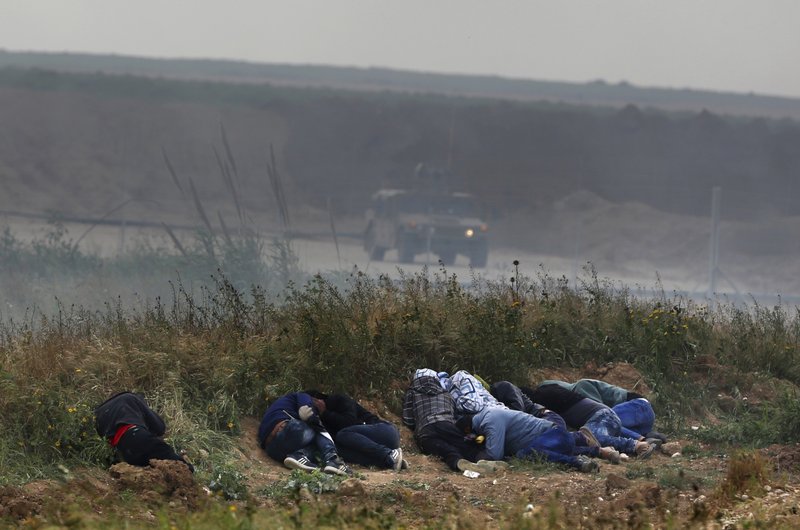JERUSALEM, May 5: An early morning rocket from the Gaza Strip killed an Israeli man Sunday outside a home in the coastal city of Ashkelon amid a massive wave of attacks, marking the first Israeli casualty from rocket fire since the 2014 war with Hamas militants.
Moshe Agadi, a 58-year-old father of four, was struck in the chest by shrapnel in a residential courtyard from one of the 450 rockets fired from Gaza in less than 24 hours — one of the most intense flareups of violence in years. The Israeli military retaliated with some 220 airstrikes against militant targets in Gaza, and said it killed eight militants.
The Palestinian Health Ministry said Israeli strikes had killed six Palestinians, including a pregnant woman and her 14-month-old niece in their east Gaza City home Saturday. However, military spokesman Lt. Col. Jonathan Conricus said Sunday that a detailed review found that a Palestinian rocket had misfired and killed them. He said the Palestinians were “trying to sell a story that isn’t true.” The conflicting accounts could not immediately be reconciled.
The sudden outburst infighting has broken a month-long lull. Egyptian mediators had been trying to negotiate a long-term cease-fire between the two sides, who have fought three wars and several other rounds of conflict over the past decade.
Conricus said Israel’s strikes hit a variety of “high-quality” militant sites, that included commanders’ homes in which militant activity was observed. He said he had no knowledge of civilians being harmed by Israeli fire. Conricus said Israel was deploying an armor brigade along the Gaza front, with tanks ready for offensive missions as needed. The Israeli military has already struck rocket launchers, tunnel shafts, training sites, storage depots and warehouses of both the territory’s Hamas rulers and the smaller, Iranian-backed Islamic Jihad group.
Israeli Prime Minister Benjamin Netanyahu said Hamas was paying a “heavy price” for its rocket attacks against Israel and that it would be held accountable not only for its own militant actions but also for that of the Islamic Jihad, which operates under its jurisdiction in Gaza.
Sirens wailed along the border region overnight warning of incoming attacks. School was canceled in southern Israel and emergency protocol enacted. A new round of attacks midday Sunday targeted major cities in the country’s south.
Israel says it struck 100 Hamas targets after rocket attack

In Gaza, large explosions thundered across the blockaded enclave during the night as plumes of smoke rose into the air.
By morning, bulldozers were clearing the streets from rubble and debris strewn on the ground and municipal workers were fixing damaged power lines. Owners of clothing stores that were destroyed in Gaza City’s relatively upscale Remal neighborhood squatted across the streets from where their stores had stood, cupping their faces in their hands.
One of the airstrikes hit a six-story commercial and residential building that housed the office of Turkey’s official Anadolu news agency.
“We thought the Remal neighborhood is safe, but it seems there is no safe place in Gaza,” said Nidal al-Dali, who lived in the building and lost his home.
Turkish Foreign Minister Mevlut Cavusoglu called it a “new example of Israel’s unrestrained aggression.”
Jordan has called for an immediate cessation of attacks, saying that the “humanitarian and living crisis (in Gaza) are unacceptable.”
The Israeli military says its Iron Dome defense system intercepted more than 150 of the projectiles from Gaza, but several still managed to slip through. A rocket scored a direct hit on a residential home in the border town of Sderot.
Jonathan Rieck, director of the emergency room at Barzilai Medical Center in Ashkelon, said they had treated some 80 people, most from shock symptoms, but several with body wounds, including an elderly man who was in critical condition from head injuries.
Israel has vowed to hit back hard against both Hamas and Islamic Jihad, whom it suspects of triggering the current conflagration. But, as in similar previous rounds where it stopped short of a full-fledged war, the timing for a prolonged round of fighting is tricky for Israel.
The country marks Memorial Day and Independence Day this week, when masses head out to ceremonies at military cemeteries and then street parties across the country. The following week it is set to host the Eurovision song contest in which large groups of tourists are expected to arrive for the campy spectacle.
For Gazans, the violence comes ahead of the Muslim holy fasting month of Ramadan that begins Monday.
Hamas, an Islamic group vowed to Israel’s destruction, forcefully seized control of Gaza in 2007. It most recently engaged in several days of heavy fighting with Israel in March before Egypt brokered a truce, in which Israel agreed to ease a crippling blockade on Gaza in exchange for a halt in rocket fire.
In recent days, Hamas accused Israel of reneging on its pledges as militants began to fire rockets into Israel. Israel accuses Islamic Jihad of operating behind Hamas’ back and instigating the latest round of violence by shooting and wounding two Israeli soldiers Friday.
Yaakov Amidror, a former Israeli national security adviser, said the source of the eruption of violence was Islamic Jihad militants in Gaza being pushed by their patrons in Tehran.
“This is the interest of the Iranians, that there will be another operation in Gaza that they will be free to continue what they are doing in Syria and Israel will be busy with and focusing on Gaza,” explained Amidror, currently a senior fellow at the Jerusalem Institute for Strategy and Security.
Islamic Jihad has threatened to fire longer range rockets toward Israel’s heartland, and in a video that also was seen as an implicit claim of responsibility, it showed archived footage of militants attaching warheads to rockets.
The resurgence of violence threatened to shatter the shaky understandings recently reached though Egyptian mediators. Israel had agreed to expand a fishing zone off Gaza’s coast, increased imports into Gaza and allow the Gulf state of Qatar to deliver aid to cash-strapped Gaza. Militant leaders were in Cairo trying to reach a new cease-fire.
Hamas has hoped that Egyptian mediators could further ease the blockade, which has ravaged Gaza’s economy. For over a year, the Islamic group has orchestrated mass demonstrations each week along the Israeli frontier to draw attention to Gaza’s plight. More than 200 Palestinians and an Israeli soldier have been killed in the border protests.







































